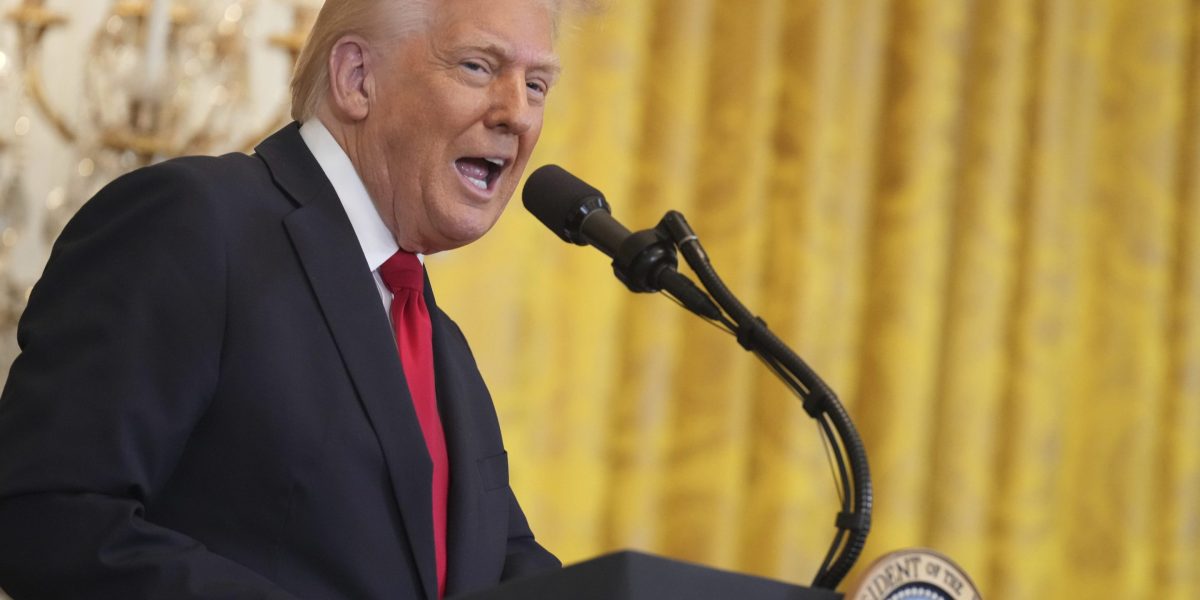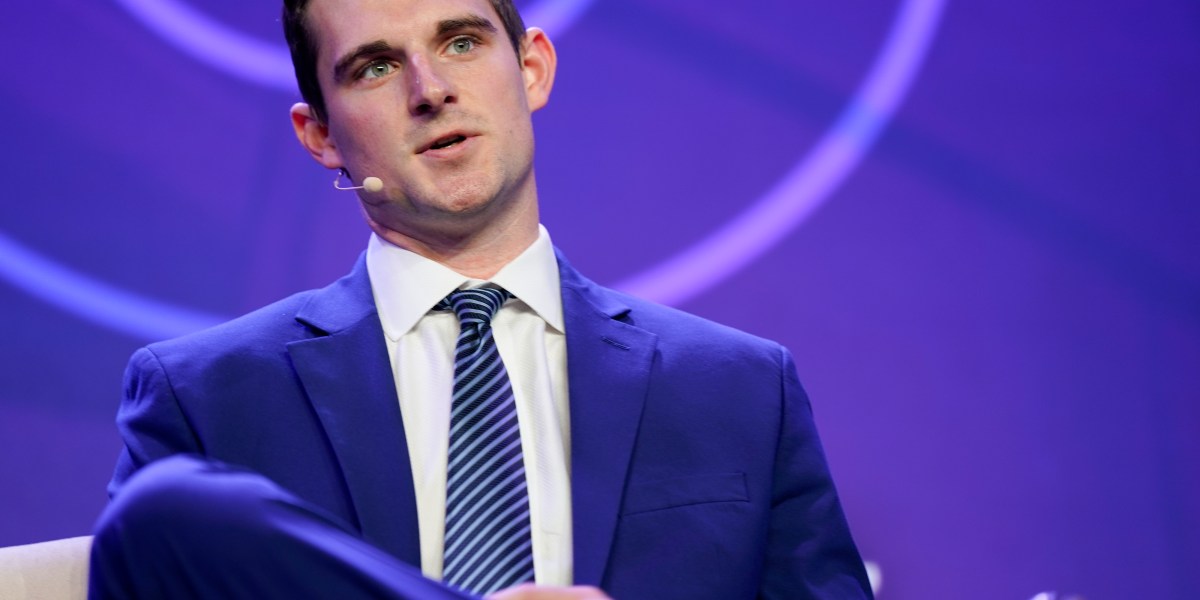When President Donald Trump announced that he had tapped 29-year-old Bo Hines for a prized role advising his ambitious crypto agenda, the blockchain industry was thrown off guard. Hines, a two-time Republican congressional candidate, had never held a formal business role in the tight-knit crypto sector.
But he did have strong ties to the Trump orbit, and a seven-figure show of support for the Trump campaign, according to public records, financial filings, and an interview with Hines.
Just one week before the 2024 presidential election, the growth investment firm Hines cofounded, Nxum Group, donated $1 million in pro-Trump campaign billboard advertisements to the $400 million Super PAC Make America Great Again Inc., according to Federal Election Commission filings. Hines, who confirmed he oversaw all of Nxum’s work in the political space, declined to provide more details about the donations and advertisements, saying only that his company helped on the “marketing side.”
Trump appointed Hines to lead his presidential council on digital assets in December, with Hines taking on a top role advancing blockchain policy below David Sacks, the venture capital heavyweight that Trump tapped as his crypto and AI czar. Though Sacks has the senior position, a spokesperson for the Office of Science and Technology Policy, where the roles are housed, said that Hines and Sacks “work side by side and very closely.”
Hines has been instrumental in helping Trump carry out his sweeping effort to reform the government’s approach to the blockchain industry, moving away from the confrontational relationship that developed during the Biden administration. In his role, Hines serves as a liaison between the White House, the crypto industry, and lawmakers and regulatory agencies. At the White House crypto summit in March, Hines sat at the main table along with Trump, Sacks, and other administration bigwigs.
From congressional candidate to crypto liaison
Hines’ path to becoming the U.S. government’s crypto emissary is an interesting one. Four years after he graduated from Yale, Hines ran for the House in a North Carolina district in the Raleigh area with an endorsement from Trump, making it to the general election before he lost in 2022. Two years later, in 2024, he lost in the primary in a different district. Hines says he translated his experience running for office into his work at Charlotte-based Nxum. The firm, which Hines cofounded with his father and another partner, does data, tech, and marketing, including political consulting, for companies it backs. Hines says he oversaw all of its political work.
“I jumped into the political arena at a young age,” he said. “I think that we were just a little bit frustrated with some of the archaic ways in which people advertise in that space.”
One of the companies in the firm’s portfolio is Today is America, a self-described “anti-woke” media organization targeted at Gen Z, where Hines says he served as head of operations to “get that off the ground,” then in 2023, after Nxum took an ownership stake in the company, Hines became the organization’s CEO. Today is America ran the social media accounts and partnered on get-out-the-vote efforts for a conservative student advocacy group called Students for Trump.
In October, Students for Trump announced a partnership with a memecoin project called Restore the Republic. The proceeds of any sales were pledged to the Trump campaign (Donald Trump’s son, Eric Trump, had disavowed any Trump-family connection to the token in August, causing its price to plummet 95%, before Hines became involved.) “With this partnership, we aim to make a meaningful impact on voter turnout, especially among young Americans,” Hines said in a press release announcing a partnership where the student group would hold events and forums to rally support for Trump in swing states. A week prior to that announcement, Hines appeared with Donald Trump’s other son, Donald Trump Jr., on a livestream hosted by Restore the Republic.
Hines told Fortune that he was not involved with the management or promotion of the memecoin. Today is America’s only work with Restore the Republic was to gin up attention for Trump on social media and get out the vote efforts ahead of the election, he says, saying he has never owned any of the token himself and therefore did not personally gain by promoting it.
Since taking his White House role, Hines is a non-acting partner at Nxum, and he says that the firm’s political work is now handled by the firm’s other two general partners, one of whom is his father.
This story was originally featured on Fortune.com
Source link


 Entertainment8 years ago
Entertainment8 years ago
 Politics8 years ago
Politics8 years ago
 Entertainment8 years ago
Entertainment8 years ago
 Entertainment8 years ago
Entertainment8 years ago
 Tech8 years ago
Tech8 years ago
 Tech8 years ago
Tech8 years ago
 Tech8 years ago
Tech8 years ago
 Politics8 years ago
Politics8 years ago






